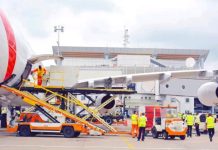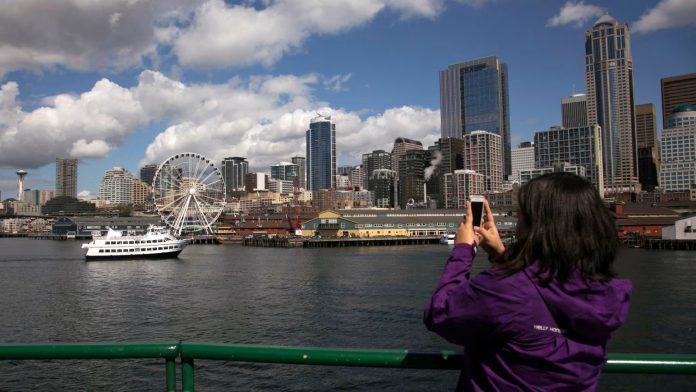The once-bustling summer streets of Seattle are noticeably quieter this year, with far fewer Canadian visitors crossing the border. According to CNN Travel, local tour operators say political tensions, tariffs, and recent U.S. policies are driving tourists away.
Joe Koenen, who runs Seattle Free Walking Tours, said the change is stark. “I have not seen a single Toronto Blue Jays baseball hat all summer,” he told CNN. “Canadians calling to cancel their tours explicitly told me that it was because of the policies and the behavior of our current president.”
Koenen estimates his company has seen 30% fewer customers overall in 2025. He has managed to keep paying employees but has had to dip into his own savings for the first time since taking over the business in 2021.
Another operator, John Brink of Tasty Tours in Pike Place Market, described the downturn as devastating. His food tour company has recorded a 50% drop in Canadian customers. The annual surge of Blue Jays fans who typically flood Seattle during Toronto’s games against the Mariners never materialized this year.
The boycott is tied to Canadians protesting against President Trump’s rhetoric toward their country during a tariff dispute. Many Canadians have also sworn off U.S. products and travel altogether.
The ripple effect is being felt nationwide. Tourism Economics, a leading analytics firm, once projected 9% international growth in 2025, but now expects an 8.2% decline, largely due to fewer Canadian visitors. The World Travel and Tourism Council has also warned that the U.S. is on track to lose $12.5 billion in international visitor spending this year, making it the only country among 184 economies they studied to see a tourism decline.
And the backlash isn’t limited to Canada. Travelers from Europe and Asia are also changing plans. Rob Hawkins from the U.K. told CNN Travel he canceled a 20-day U.S. itinerary in favor of South Korea and Japan, citing political division and heavy-handed immigration enforcement in the U.S.
Tourism experts say the trend is unprecedented. “It’s happened before in a country at war, or with a health crisis, but in a normal situation, we’ve never seen this kind of turnaround,” Didier Arino of Protourisme told CNN.
The downturn is forcing American tour businesses to make tough choices. In Los Angeles, Adam Duford of Surf City Tours said revenue has plunged 49% this year, hit by misinformation about wildfires, protests, and the absence of Canadian spring-break travelers.
“It’s hard to be angry, because it’s not just me,” Duford said. “For all the promises of a good economy … it doesn’t seem like that’s happening.”
Despite hopes of a rebound, Tourism Economics now projects that international tourism to the U.S. won’t fully return to pre-pandemic levels until 2029, three years later than previously expected.
















